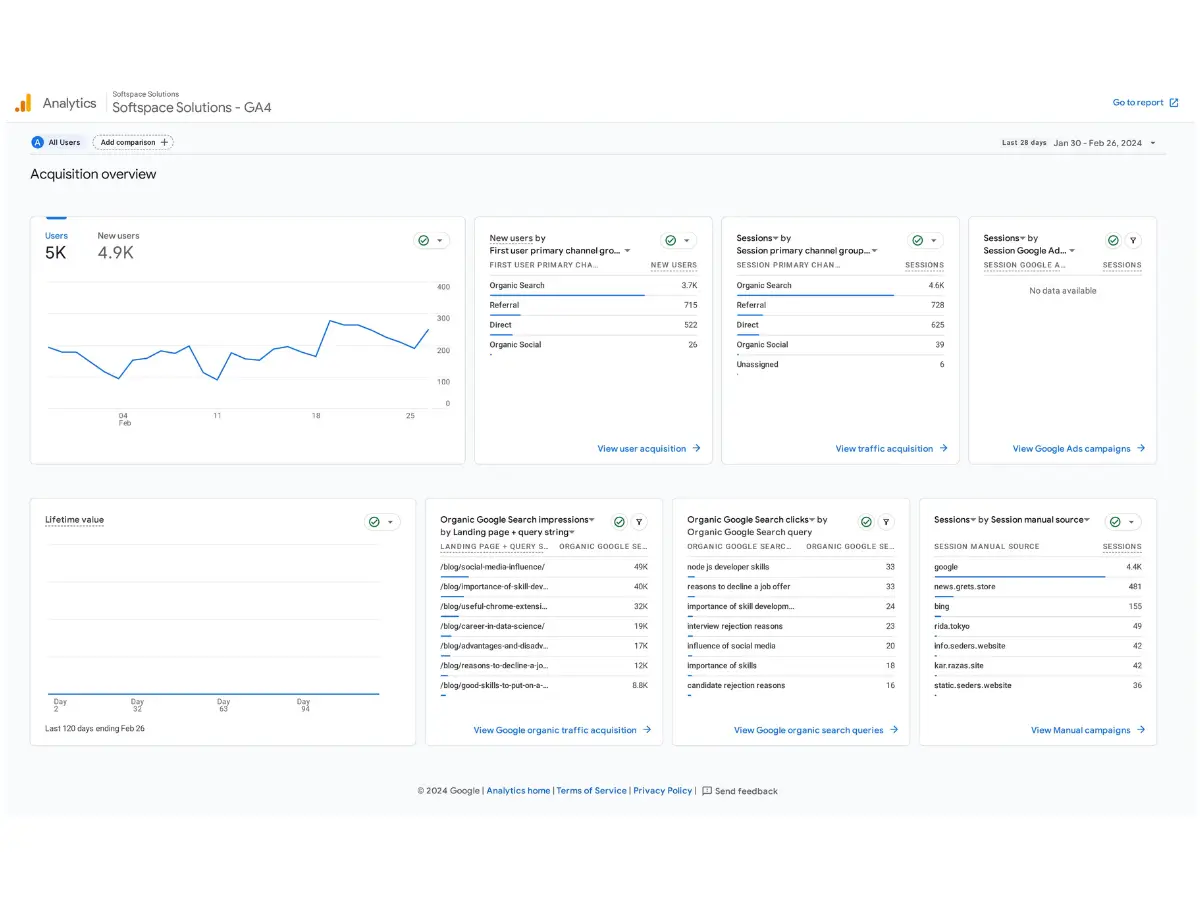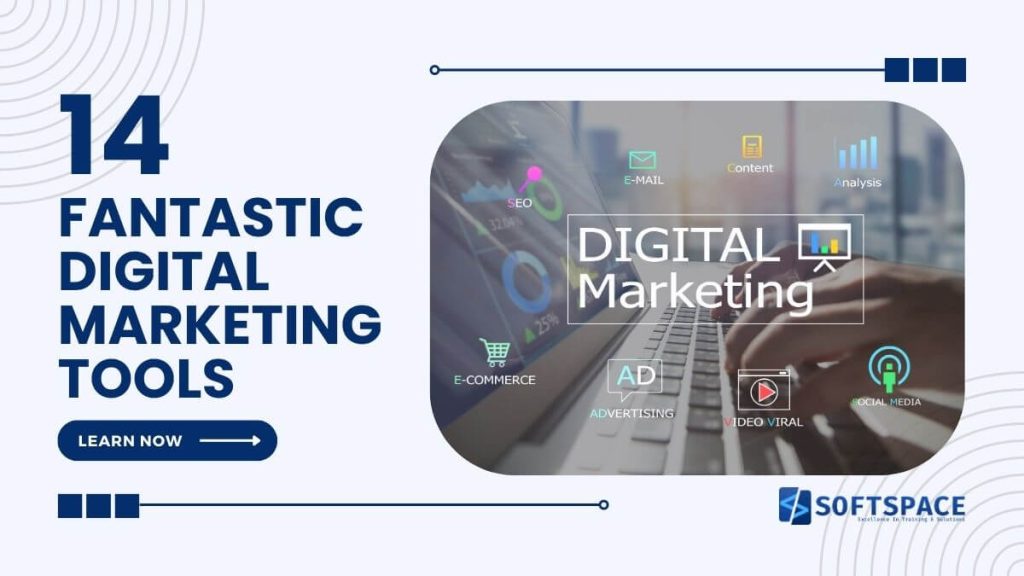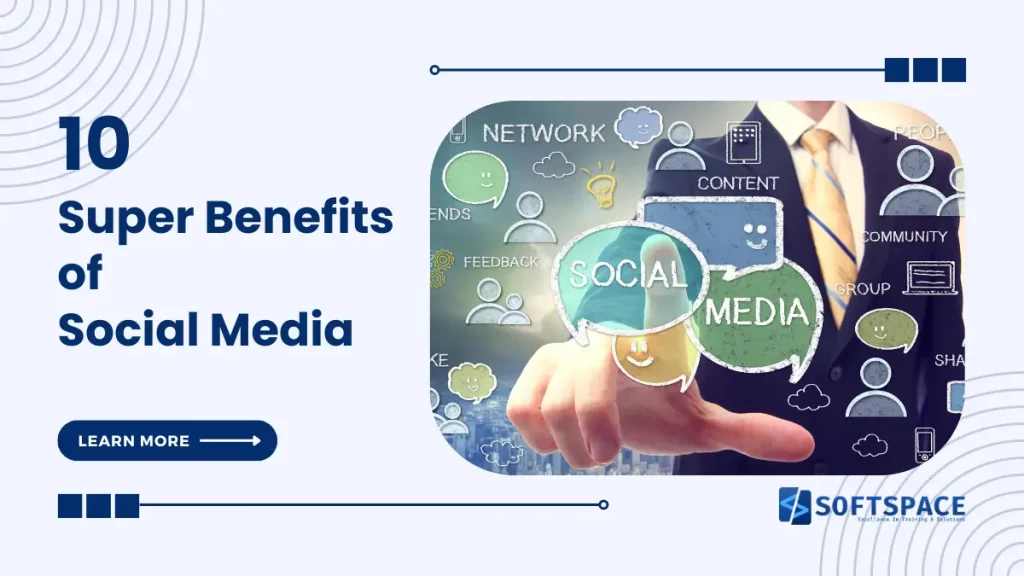In the dynamic landscape of today’s business world, the term “Digital marketing and its impact on small businesses” has become more than just a buzzword; it’s a transformative force reshaping the entrepreneurial realm.
As the digital age continues to unfold, small businesses are finding themselves at a pivotal crossroads where adopting innovative marketing strategies is not just an option but a necessity for survival and growth.
This blog delves into the profound influence digital marketing exerts on small enterprises, exploring how leveraging online channels, social media, and data-driven insights can propel these businesses into new realms of success in an ever-evolving marketplace.
So, how can we summarize Digital marketing and its impact on small businesses? It consists of a lot of factors as defined and explained below. Let us explore the reach of digital marketing and how it impacts small businesses with respect to growth, exposure, reach, and conversions.
Table of Contents
Digital marketing and its impact on small businesses
It is HUGE. The impact, the reach, the ROI, everything. Digital Marketing is a huge concept with a variety of ways to reach your audience to sell your product and services. you can go social for shopping ads, popularize a YouTube channel and earn affiliates, sell on Google Ads, and generate instant leads.
There are a lot of ways to sell your products and services. All you need to know is your audience and figure out where they hang out with respect to your product/service.
Reaching a Global Audience
One of the most remarkable outcomes of embracing digital marketing and its impact on small businesses is the unparalleled ability to reach a global audience from anywhere. Traditionally, local businesses faced geographical constraints, limiting their customer base to the immediate vicinity.
However, the advent of digital marketing has dismantled these barriers, providing small enterprises with a virtual passport to the world. Through strategic online campaigns, social media engagement, and optimized websites, small businesses can now showcase their products or services to a global audience.
This transformative aspect of digital marketing not only fosters brand visibility but also opens doors to new markets and diverse customer segments, propelling small businesses into the international spotlight.
Cost-Effectiveness
Digital marketing has emerged as a game-changer for small businesses, offering a cost-effective alternative to traditional marketing channels. Unlike traditional methods that often demand significant financial investments, digital marketing allows small enterprises to maximize their budget and achieve a higher return on investment (ROI).
Online platforms offer various affordable advertising options, such as pay-per-click (PPC) campaigns, social media ads, and email marketing, enabling businesses to target specific audiences with precision.
The ability to track and analyze campaign performance in real-time further empowers small businesses to optimize their strategies, ensuring that every dollar spent contributes directly to reaching and engaging their target audience, making digital marketing a cost-efficient ally for small business growth.
Digital marketing and its impact on small businesses can be significant if you have a plan to execute with a small investment. Expenses are there, but they will be cost-effective and result-oriented.
| Feature | Google Ads | Facebook Ads |
|---|---|---|
| Network Size | Reaches 90% of Internet users | Reaches 51% of Internet users |
| Average Cost (CPC) | $2.69 | $0.97 |
| Average Conversion Rate | 3.75% | 9.21% |
| Average Click-Through Rate (CTR) | 3.17% | 0.90% |
| Average Return on Investment (ROI) | 8:1 | 2.5:1 |
| Ad Targeting | Location, Demographics, Keywords, Topics, Placements, Affinity, In-market, Remarketing | Location, Demographics, Behavior, Interests, Connections |
Targeted Marketing
Digital marketing provides small businesses with a powerful tool for precision and efficiency through targeted marketing.
Unlike traditional advertising methods that cast a wide net, digital marketing allows businesses to tailor their messages and promotions to specific demographics, interests, and behaviors of their ideal audience.
Through data analytics and consumer insights, small businesses can identify and reach their target market with remarkable accuracy.
The Power of Online & Social Reach
Social media platforms, search engines, and online advertising tools enable businesses to create highly targeted campaigns, ensuring that their messages resonate with the right audience. The influence of social media is visible through influencer marketing and reels.
This not only enhances the effectiveness of marketing efforts but also minimizes the wastage of resources by focusing on those most likely to convert into customers.
The ability to refine and adjust targeting in real time makes digital marketing a dynamic and responsive strategy for small businesses aiming to connect with their most valuable customer segments.
Also, there are certain advantages and disadvantages of social media marketing. For example, lead quality is far more superior for the service industry in Google Ads than Facebook Ads.
If you are planning to market your own business, these social media marketing tips will surely help you to start. As you go ahead, you will also need a powerful social media marketing strategy to up the social game.
Flexibility and Adaptability
Digital marketing offers small businesses a distinct advantage through its inherent flexibility and adaptability.
Unlike traditional marketing methods that often involve lengthy planning and production processes, digital marketing campaigns can be created, modified, and deployed swiftly.
This agility allows small businesses to respond promptly to market changes, emerging trends, or shifts in consumer behaviour.
The flexibility extends to the variety of digital channels available, including social media, email, search engines, and content marketing. Small businesses can experiment with different platforms to find the most effective ones for their target audience.
Additionally, the ability to measure real-time data and analytics empowers businesses to track the performance of their campaigns and make instant adjustments for optimal results.
This adaptability not only ensures that small businesses stay relevant in a fast-paced digital landscape but also enables them to fine-tune their strategies for maximum impact, creating a dynamic marketing approach that aligns with the ever-evolving needs of their audience.
Measurable Results
One of the key advantages of digital marketing and its impact on small businesses is the ability to track and measure results. With tools like Google Analytics, businesses can gain insights into website traffic, customer behavior, and conversion rates. There is a big impact of digital marketing on consumer behaviour. This tells you what consumers do online and how they interact with your or any other brand.
This data provides valuable information that can be used to make informed decisions and optimize marketing campaigns. By analyzing the metrics, businesses can identify what is working and what needs improvement, allowing for continuous growth and success.
Additionally, digital marketing tools often offer detailed demographic information about the audience reached, helping businesses understand their customer base better.
This level of measurability enables small businesses to optimize their marketing strategies continually, allocate resources effectively, and make informed decisions to enhance overall performance and achieve tangible, measurable results.
Building Brand Awareness
Digital marketing plays a crucial role in building brand awareness for small businesses. Through various online channels, businesses can showcase their products or services, share their brand story, and engage with their target audience.
Social media platforms provide an opportunity to create meaningful connections with customers, while content marketing helps establish thought leadership and credibility.
By consistently delivering valuable and relevant content, small businesses can build a strong and recognizable brand that resonates with their audience.
Search engine optimization (SEO) techniques can also enhance online visibility, making it easier for potential customers to discover and engage with a small business.
The interactive nature of digital marketing allows businesses to directly connect with their audience, receive feedback, and address customer inquiries, contributing to a positive brand perception.
Enhancing Customer Engagement
Digital marketing enables small businesses to engage with their customers in a more interactive and personalized way. Through social media, businesses can respond to customer inquiries, provide support, and address concerns promptly.
This level of engagement not only strengthens customer relationships but also fosters brand loyalty. By actively listening to customer feedback and preferences, businesses can continuously improve their products or services to better meet customer needs.
Social media platforms, for instance, provide a dynamic space for small businesses to engage with their customers through posts, comments, and direct messages. Regularly sharing relevant and engaging content keeps the audience informed and interested, while also providing opportunities for customers to share their experiences and feedback.
Email marketing is another effective digital strategy for nurturing customer relationships. Personalized and targeted email campaigns can deliver valuable content, promotions, and updates directly to the inboxes of interested customers, encouraging ongoing engagement.
Furthermore, features like live chats on websites, webinars, and interactive content contribute to a more engaging customer experience. The ability to respond promptly to customer inquiries, address concerns, and provide valuable information in real time creates a positive and interactive relationship between small businesses and their audience.
Competing with Larger Businesses

The above image shows the Avg. CPC i.e. Cost Per Click. Suppose these leads convert, then we have a customer for only Rs.14.12/-
In the competitive business landscape, digital marketing has emerged as the great equalizer, empowering small businesses to effectively compete with their larger counterparts.
Unlike traditional advertising, digital marketing offers cost-effective strategies that ensure a wide-reaching impact without the burden of substantial budgets.
Through targeted advertising on various online platforms, small businesses can precisely tailor their messages to specific demographics, maximizing the relevance of their marketing efforts.
The agility and adaptability inherent in digital marketing allow small enterprises to quickly respond to market changes, keeping them nimble and competitive.
Additionally, the ability to leverage data-driven insights enables small businesses to make informed decisions, optimizing their strategies for maximum impact.
With the power to build authentic connections through engaging content and personalized communication, digital marketing not only expands the local reach of small businesses but also opens doors to a global audience, making them formidable contenders in the modern business arena.
Real-Time Analytics and Data-Driven Decisions

Unlike traditional methods, digital marketing platforms provide immediate access to comprehensive data analytics, offering insights into the performance of campaigns, user behavior, and engagement metrics.
This real-time feedback allows small businesses to adapt and refine their strategies on the fly, responding promptly to market trends and consumer preferences.
Through the analysis of user interactions, small businesses can gain a profound understanding of their audience, identifying what resonates and what needs adjustment.
This data-driven approach enables informed decision-making, guiding businesses to allocate resources effectively, optimize campaigns, and prioritize initiatives that yield the highest return on investment.
The ability to measure and analyze results in real-time not only enhances the efficiency of marketing efforts but also ensures a dynamic and responsive approach, positioning small businesses to stay competitive in the ever-evolving digital landscape.
Expanding Customer Base
Digital marketing catalyzes small businesses looking to expand their customer base in a scalable and targeted manner. Through various online channels, small businesses can strategically reach and attract new customers, unlocking growth opportunities.
Search engine optimization (SEO) plays a crucial role in enhancing online visibility, making it easier for potential customers to discover a small business through search engines. Social media platforms provide a dynamic space for businesses to showcase their products or services, engage with a broader audience, and create shareable content that can attract new customers.
Paid advertising, such as pay-per-click (PPC) campaigns, allows small businesses to specifically target audiences based on demographics, interests, and online behavior. This targeted approach ensures that marketing efforts are focused on reaching individuals who are more likely to be interested in the products or services offered.
Email marketing is another effective tool for nurturing and expanding the customer base. By delivering personalized and relevant content directly to the inboxes of potential customers, small businesses can build relationships and convert leads into loyal patrons.
Continuous Growth and Adaptation
Digital marketing plays a pivotal role in fostering continuous growth and adaptation for small businesses. Unlike traditional marketing approaches, digital strategies provide a dynamic framework that allows businesses to evolve in real time, ensuring they stay relevant and competitive in the ever-changing landscape.
One key aspect of digital marketing contributing to continuous growth is the ability to gather and analyze data. Through analytics tools, small businesses can gain valuable insights into customer behavior, preferences, and the performance of their marketing efforts.
This data-driven approach empowers businesses to make informed decisions, optimize strategies, and allocate resources effectively, fostering a cycle of continuous improvement.
The interactive nature of digital platforms further facilitates ongoing engagement with the target audience. Social media, email marketing, and other online channels enable small businesses to maintain a direct line of communication with customers.
This not only helps in building brand loyalty but also provides a platform for receiving feedback and adapting strategies based on customer preferences and market trends.
Digital marketing also supports agility and adaptability. Small businesses can quickly pivot their campaigns, adjust messaging, or explore new platforms based on real-time feedback and emerging opportunities. This flexibility allows them to capitalize on trends, respond to market shifts, and stay ahead of the competition.
The Future of Marketing
Digital marketing is the future of marketing, and small businesses that embrace it stand to gain significant advantages. With the increasing reliance on the internet and digital platforms, businesses cannot afford to ignore the power of online marketing. By leveraging the various digital marketing channels available, small businesses can secure their place in the digital landscape and thrive in a highly competitive market.
The future is online and mobile. Maximum visitors to our website are from mobile devices. Everyone is searching for answers online. So, Digital is the new normal. If you are a good asset at providing digital services, you can easily earn and settle in this field. For skill development in this field, you can check our Digital Marketing Course which is fully equipped with all core and application concepts.
In conclusion, digital marketing is essential for small businesses to thrive in today’s digital age. It offers numerous benefits, including reaching a global audience, cost-effectiveness, targeted marketing, flexibility, and adaptability.
By building brand awareness, enhancing customer engagement, and utilizing real-time analytics, small businesses can compete with larger corporations and achieve continuous growth. Embracing digital marketing is not just a choice; it is a necessity for small businesses looking to succeed in the modern business landscape.
Remember, the key to successful digital marketing is to understand your target audience, craft relevant and engaging content, and continuously measure and optimize your strategies. By staying agile and responsive in the digital world, small businesses can unlock the full potential of digital marketing and drive their success to new heights.

13+ Yrs Experienced Career Counsellor & Skill Development Trainer | Educator | Digital & Content Strategist. Helping freshers and graduates make sound career choices through practical consultation. Guest faculty and Digital Marketing trainer working on building a skill development brand in Softspace Solutions. A passionate writer in core technical topics related to career growth.




